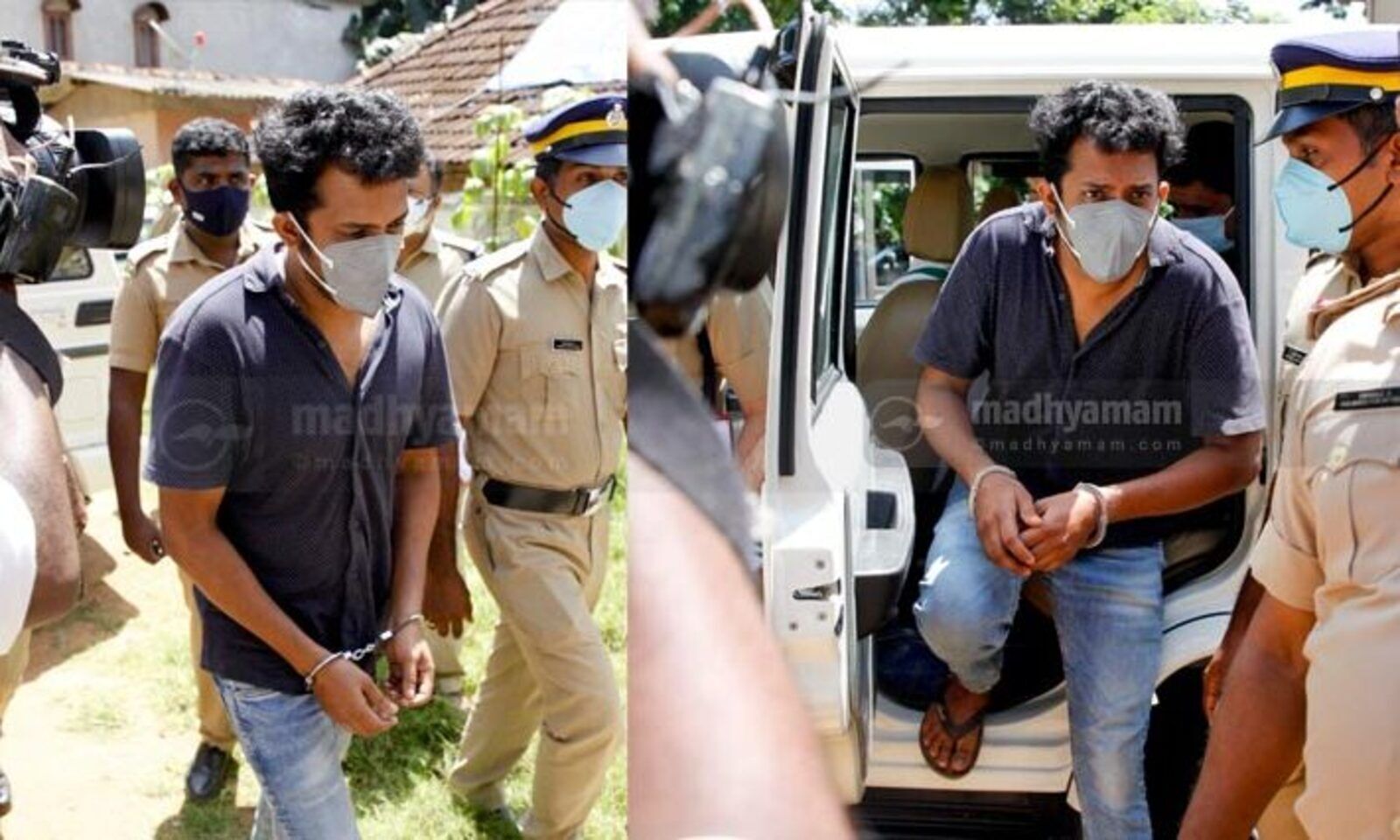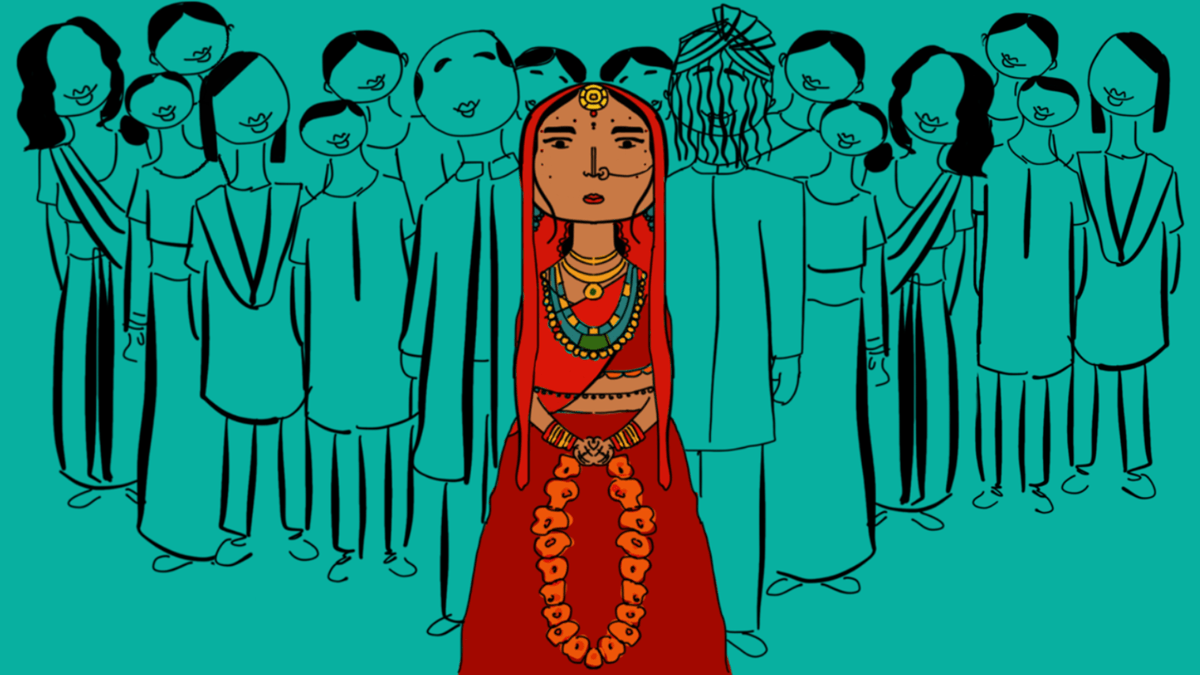Trigger warning: Mentions of abuse, dowry deaths, gender-based violence
Marriage as a social institution has always assumed a community orientation in our culture. This has enabled social mores to dictate the customs surrounding marriages, almost making it a transaction. The marriage expenses in cis-het marriages are typically met by the bride’s parents, and there is exchange of money or assets of monetary value in the form of dowry, or ‘gifts for the newlyweds’ as more ‘progressive‘ households like to call it.
When such monetary expectations from the woman’s side have been normalised, attributing the worth of the bride to the money she brings to the table is also seen as a common practice. It is perhaps because of this pervasiveness that domestic abuse and even death on the grounds of dowry has become common in our society.
The Kollam Additional Sessions Court’s recent sentencing of 10 years in jail for Kiran Kumar, the husband of 22 year old Vismaya who died by suicide after months of abuse over dowry, is seen by some as the legal system’s and society’s eventual step up to address the social evil of dowry. In a shocking reveal of events, the reports of the case show that Vismaya’s family knew about the abuse and had intervened in the hope of resolving the situation. Vismaya herself had accepted that ‘it was her fate and she had to deal with it’.
The societal sanction against a woman who is anything other than a ‘good wife’ is so strong that many women believe abuse is a normal part of married life.

Social conditioning that places stigma above safety
An analysis of this case shows the intense fear instilled in girls from a young age of the social stigma that will come their way if they leave their matrimonial homes. Even with more women choosing to stay unmarried or getting out of abusive marriages, the hate that they have to face makes every woman rethink the decision to leave abusive marriages.
The patriarchal conditioning of society ensures that this hate and shame is always directed to the woman and never the man who thought it was appropriate to abuse her in the first place. The public uproar that the case against Kiran Kumar garnered,which led him to be dismissed from his government job initially, is a good sign in terms of collectively mobilising where to direct the blame. However, one cannot ignore the equally strong counter narratives that trivialised Vismaya’s death as silly behavior.
Despite the harsher penalties, the tradition of dowry as a fundamental element of marriage remains strongly rooted in our culture. According to the National Crime Records Bureau of India, there were more than 13,000 dowry complaints and more than 7,100 dowry deaths in India in 2019. These figures are enough to show that legal banning has not been sufficient to ensure the discontinuation of the practice socially
The social norms that trap women in loveless marriages where they are deemed to suffer abuse because of how much money she brought (or did not bring) into her ‘husband’s house’ have to be addressed to eliminate the occurence of dowry deaths. While social awareness and unlearning might take years to achieve, legal measures to challenge this should be tightened. In a country that does not entirely recognise sexual abuse by husband as rape, this call for legal measures would also imply identifying the inherent moral biases in our codes of law.
The verdict in Vismaya’s case, albeit pronounced after a year of the incident, will perhaps serve as an example of how the swift disposal of justice can serve as a deterrent for domestic abuse due to dowry, despite dowry being legally prohibited.

The continuation of the practice of dowry despite legal prohibition
The 1961 Dowry Prohibition Act made dowry illegal and punishable by a fine and a minimum sentence of five years in prison. In the 1970s and 1980s, a popular movement against the dowry system arose as legislators recognised the limitations of using law to advance social transformation. However, as dowry-related violence continued to rise, the government reacted, this time with the weapon of deterrence.
As a result, the Indian Penal Code (IPC) was changed in 1983, to include cruelty by the spouse or his relatives as a crime. The Indian Evidence Act of 1872 was also changed to include a presumption of suicide abetment if the woman is subjected to mistreatment by her husband or his relatives.
Also read: Does Marriage Justify Rape?: The Delhi High Court’s Split Verdict On Criminalising Marital Rape
Despite the harsher penalties, the tradition of dowry as a fundamental element of marriage remains strongly rooted in our culture. According to the National Crime Records Bureau of India, there were more than 13,000 dowry complaints and more than 7,100 dowry deaths in India in 2019. These figures are enough to show that legal banning has not been sufficient to ensure the discontinuation of the practice socially. Only 35.6 percent of the 3,516 dowry fatalities tried in court in 2019 resulted in a criminal conviction. Experts say that it can be difficult for families to prove that a woman died as a result of dowry abuse.
Numerous cases are still pending in courts. As of the end of 2019, around 46,000 cases were still awaiting trial. This demonstrates that the existing laws have been ineffective for a long time. The modern term of gift giving is a “loophole” in the 1961 Dowry Prohibition Act, according to Shahida Kamal, a member of the Kerala Women’s Commission. She critiqies the exemption of gifts like gold, land, or cars given by the woman’s family, from the Act’s provisions.
With active legal measures in the move, the need of the hour is an honest discourse within our families on what we expect from our women in marriages. Do we treat them as burdens that require money to be constantly spent on them? Conversely, does the man’s family see the daughter-in-law as primary capital for their potential plans for financial security?
Unfortunately, Vismaya’s story is not an isolated one. With multiple cases of deaths of women in their marital homes, the Chief Minister of Kerala, Mr., Pinarayi Vijayan took to Twitter to express his resentment over the practice as well as to announce newer mechanisms to challenge the practice of dowry. “As a society, we need to reform the prevailing marriage system. Marriage must not be a pompous show of the family’s social status and wealth. Parents have to realise that the barbaric dowry system degrades our daughters as commodities. We must treat them better, as human beings,” he tweeted.
He also announced that the Domestic Conflict Resolution Centres instituted in every district have been enhanced as per special orders given to the DGP. ‘Aparajitha‘, the online service to resolve cyber crimes against women has been updated to accommodate complaints on offenses against women in terms of domestic abuse.
While these changes are welcome, like educationist Indira Rajan pointed out, such measures were taken only as an afterthought following the outrage about very publicised dowry death cases. The measures for the safety of women should not remain in hindsight, until something drastic happens.
With active legal measures in the move, the need of the hour is an honest discourse within our families on what we expect from our women in marriages. Do we treat them as burdens that require money to be constantly spent on them? Conversely, does the man’s family see the daughter-in-law as primary capital for their potential plans for financial security?
As Prof. Praveena Kodoth, who specialises in gender, migration and human development at the Centre for Development Studies in Thiruvananthapuram, opines, “Dowry is just the symptom of a larger problem and the larger problem is marriage. The problem is that a woman is not seen as having a life if she’s not married. In Malayalam, they say ‘ninakku oru jeevitham vende? (Don’t you need a life?). What does that mean? They use phrases like ‘ozhinju poyi, ninnu poyi, irunnu poyi’ ( got left behind, got sat behind) if you are not married which means you don’t move. They don’t say that about men. Men are not seen as lifeless if they don’t get married, women are.”
Also read: The Knot-able Age: An Overview Of Indian Women’s Negotiations When It Comes To Marriage
The social construct of marriage as a sacred institution which should not be broken at any cost, has to be re-invented. Marriage is an individual choice, which does not increase or decrease their inherent worth. Dignity, agency and safety of women entering marriages should be ensured for it to be a safe space and not a site for lifelong abuse or exploitation.
Featured illustration: Ritika Banerjee for Feminism In India
About the author(s)
Stephy is a masters student in Jamia. Her interests revolve around issues of conflict and peace, gender and mental health. She hopes to shed her inherent biases daily and become a better ally each day





There are countless false cases of dowry and thousands of men commit suicide every year, but media does not highlight crimes of women against men. Even if a man is able to prove his innocence, he will lose his job and face social boycott. Men sink in depression. Women who falsely accuse men walk scot free. 70% suicides in India are of men. Most are married men. Men taking dowry is a crime, but at the time of marriage women taking expensive jewellery, engagement ring, expensive clothes, demanding that a man has a car, his own house, a six figure salary is acceptable. After marriage, asking a man to spend beyond his means, going on vacations, spending extravagantly on shopping, continuously making monetary demands is also acceptable. Even when women earn, they don’t contribute to the household. Men are treated like disposable ATMs.
Crimes against women get media coverage, uproar, and justice. But crimes against men go unnoticed.
Rourkela Man Ends Life Due To False Dowry Case By In-Laws
https://voiceformenindia.com/watch-video-cant-see-my-old-parents-running-around-courts-rourkela-man-ends-life-due-to-alleged-false-dowry-case-by-in-laws/
Kerala Man, Father, Die By Suicide After Wife Filed Dowry Case Against Husband & His Family
https://voiceformenindia.com/kerala-man-father-die-by-suicide-after-wife-filed-498-a-case-against-husband-his-family/
Man Commits Suicide After Wife And Mother-In-Law Constantly Harassed Him For Money
https://voiceformenindia.com/husband-suicide-india/
Rajasthan Man Jumps In Front Of Train Accusing Wife And In-Laws Of Harassment
https://voiceformenindia.com/rajasthan-man-jumps-in-front-of-train-ends-life-accusing-wife-in-laws-of-harassment/
Indian Army Officer Commits Suicide Within One Year Of Marriage As Wife, In-Laws Harassed Him For 15 Lakh Alimony
https://voiceformenindia.com/indian-army-officer-dies-by-suicide-within-one-year-of-marriage-as-wife-in-laws-allegedly-harassed-him-rs-15-lakh-alimony/
Newly Married Patiala Groom Dies By Suicide Due To Rs 70 Lakh Alimony Harassment By In-Laws
https://voiceformenindia.com/newly-married-patiala-groom-dies-by-suicide-due-to-rs-70-lakh-alimony-harassment-by-in-laws/
30 Year Old Gujarat Commits Suicide After Endless Demands Of Cash And Jewellery By Fiancee
https://voiceformenindia.com/30-year-old-gujarat-man-dies-by-suicide-due-to-endless-demands-of-cash-jewelry-by-fiancee/
38 Year Old Nagpur Doctor Ends Life Leaving Suicide Note Blaming Wife, Brother-In-Law Of Harassment
https://voiceformenindia.com/38-year-old-nagpur-doctor-ends-life-leaving-suicide-note-blaming-wife-brother-in-law-of-harassment/
Hyderabad Techie Commits Suicide After Arrest Of Parents And Self In Dowry Case Filed By Wife
https://voiceformenindia.com/hyderabad-techie-dies-by-suicide-after-parents-self-were-arrested-under-section-498a-filed-by-wife/
24 Year Old Dies Within 5 Days Of Marriage After In-Laws Threaten False Rape Case
https://voiceformenindia.com/24-year-old-man-dies-by-suicide-within-5-days-of-marriage-as-in-laws-threaten-false-rape-case/
Nirbhaya Type Assault In Rohtak | Wife, In-Laws Insert Cane & Chilli Powder Inside Husband’s Private Parts; English Media Silent
https://voiceformenindia.com/nirbhaya-type-assault-in-rohtak-wife-in-laws-insert-cane-english-media-silent/
Dowry is wrong but seeking a man for marriage with a govt. job, taking lakhs worth of jewellery, alimony, child support, half of a man’s assets after a divorce is okay.